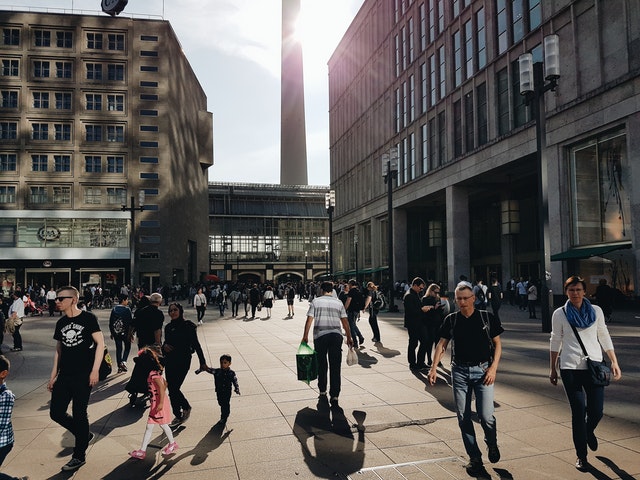“Just let a few people get sick and then we’ll have herd immunity.” This was a common argument we heard for letting the coronavirus “run its course.”
Yes, herd immunity is real. But it’s a lot more complicated than many people realize.
Herd immunity, also sometimes called immunity community, refers to when a large percentage of a population is already immune to a virus or bacteria. The idea is that if enough people are resistant to a disease, then the virus or bacteria can’t continue to spread. Thus, it mostly dies out.

Herd immunity has been tossed around a lot more recently as an acceptable approach for combating COVID-19. While reaching herd immunity is absolutely a goal, we need to understand exactly what it would take.
How Exactly Do We Reach Herd Immunity?
Herd immunity can be reached via two routes: by people contracting the disease and getting the antibodies, and by people getting vaccinated against the disease. It’s usually a combination of the two.
Willingly allowing a population to obtain herd immunity by letting sickness spread is unethical. Not only that, but the percentages we need to hit in order to reach community immunity are so high that countless people would needlessly become ill and die, when another option is available.
That option? Vaccination.
Vaccines are, hands down, one of the best ways to fight the spread of disease. In fact, more often than not, it’s simply not possible to achieve herd immunity without vaccination.
These days, we don’t even have to think about diseases like polio, tetanus, and hepatitis A and B, and that’s thanks to vaccines. We now have the power to control the flu — something that can be more dangerous than people sometimes suspect — because we have an effective vaccine for it each season.
When you look at it this way, it seems silly to intentionally let a disease run reckless, affecting millions across the globe, when you could protect populations by encouraging vaccination.
Will We Reach Herd Immunity for COVID-19? When?
Now that we know how important getting people vaccinated is going to be to beat COVID-19, another important question arises: How long can we expect it to take to reach herd immunity?
To be clear, we don’t yet have a conclusive answer to this, and the data is changing every day.
In the United States, we have in the neighborhood of 30 million documented infections of coronavirus. On top of that, we highly suspect that we have far more who were infected and developed the antibodies but went undocumented.
Next, let’s talk about vaccines. We know that in the near future, approximately 50-100 million Americans will have at least one dose of the COVID-19 and will have started developing immunity.
Once the combination of those infected and those vaccinated gets up to around 80%, the virus won’t have enough targets to infect. This will defer a level of immunity to those who haven’t been infected or vaccinated.
Considering all of the people who’ve been infected and those who’ve been vaccinated, we’re hoping for herd immunity within the next six to nine months, possibly sooner.
The Challenge With Vaccinating
It goes without saying that having developed not one but multiple coronavirus vaccines so quickly has been an incredible milestone for the medical community. And we know that it’s going to give us a chance to get the virus under control.
But we’d be mistaken to think that the battle has been won.
We still face a number of challenges in ending this pandemic, even with the vaccine. For example, we don’t yet know with certainty that the vaccine will prevent transmission of the virus. We also must take into consideration that vaccine roll-out is uneven. Some parts of the country and world are ahead of others. This has been an ongoing issue.
Then, there are the coronavirus variants to consider. These variants could be resistant to the current vaccines and even more contagious. Additionally, we don’t yet know how long immunity lasts, from both the vaccine and the disease itself. While current research suggests that the reinfection rate is low, only time will tell.
Vaccine hesitancy is another concern. Understandably, some people are unsure of the new vaccine. An enormous effort is being made to educate these people and give them the support and resources they need to make the right decision.
Furthermore, with travel restrictions easing up, people are eager to jump on a flight and reach their next destination. That will undoubtedly make it harder for us to reach our goal.

Make no mistake about it: The pandemic is not yet over. Keeping a safe distance from other people and wearing a mask is still vital.
You might be wondering, “With all these obstacles, why bother vaccinating in the first place?” First, I want to note that we’re going to encounter obstacles no matter what.
Regardless of these obstacles, experts agree that vaccination is still our best chance for conquering coronavirus and getting the globe back on a healthier track.
Community Immunity and the Coronavirus
Can we reach herd immunity for COVID-19? Yes. Is it going to happen tomorrow? No. Will it be an effort that the entire nation needs to get behind? 100%.
In other words, we still have some work to do.
Getting vaccinated is going to rapidly speed up this process. And remember, you don’t get vaccinated only for yourself; you do it for others, too. There are going to be people who simply cannot receive the vaccination — like infants and people with certain health complications.
We indeed rely on herd immunity to protect us from dangerous diseases but know that simply letting people get sick isn’t the answer.













